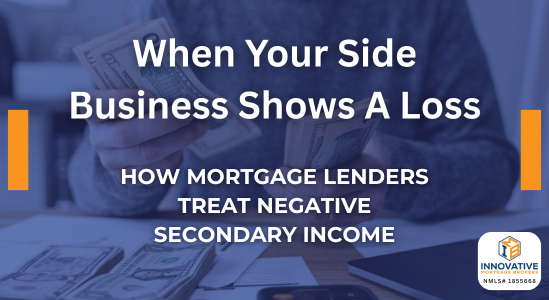Turning Rent into Equity Rent-to-own can work, but only when the paperwork is airtight. Lenders…
FHA Loans – How Much is the Down Payment?

You might consider FHA loans if you don’t have perfect credit or need flexible underwriting requirements. This loan program offers more flexible guidelines, including allowing credit scores as low as 580.
Lenders can offer more flexible guidelines with FHA loans because they have a government guarantee. The FHA backs the loans lenders fund in the FHA program, promising to pay them back if a borrower defaults.
The more flexible guidelines are great, but how much is the down payment on FHA loans?
How Much is the Down Payment on FHA Loans?
FHA loans have a standard minimum down payment and a down payment that’s offered as an exception to borrowers with low credit scores.
The average borrower needs a 3.5% down payment. This applies to all borrowers with a credit score of at least 580. However, if you have a credit score between 500 and 579, some lenders will allow you to borrow FHA funds with a 10% down payment.
FHA Down Payment Gift Rules
In some cases, you might be eligible for gift funds from a family member, employer, or charitable organization. However, there are strict rules you must follow.
First, the funds must not be a loan. The lender needs proof that the funds are a gift without repayment required. The donor must provide a gift letter stating the funds are a gift and the reason for the gift (down payment on the home).
The gift funds must be traceable and from an acceptable source, including:
- Checking
- Savings
- Investment accounts
The lender will require the donor to track the funds from their origination to gifting them to you. This usually requires copies of the bank or investment statements to prove the origination of the funds and a copy of the check or deposit to you.
Gift funds may never come from the seller, real estate agents, lender, or any other interested party.
FHA Down Payment Assistance
FHA lenders can also accept down payment funds from down payment assistance programs. They don’t have a specific program for borrowers, but if you find programs in your state or from a local charity, you may be able to use the funds to qualify for your down payment.
Other Funds You’ll Need to Close
The down payment is the start of what you’ll need to buy a home. In addition, you’ll need to cover the closing costs, which, unlike the down payment, aren’t an investment in the home.
Closing costs cover the cost of underwriting and processing your loan. The average FHA loan has 3% – 6% of the loan amount in closing costs. This amounts to $3,000 – $6,000 for every $100,000 you borrow.
FHA loans also require upfront mortgage insurance. You pay this insurance premium at the closing to get the FHA guarantee which is 1.75% of the loan amount. However, the lender can often roll it into your loan amount if you don’t have the funds.
Pros and Cons of FHA Loans
FHA loans have more flexible guidelines, including lower credit scores and down payments, but there are pros and cons to consider, like any loan.
Pros
- Lower credit scores – You can get an FHA loan with a credit score of 500+. Not all lenders offer loans with 500 – 579 credit scores, but even a 580 credit score is low compared to other loan options. This makes it easier to buy a home before you have perfect credit.
- Seller concessions allowed – The FHA allows sellers to help buyers with closing costs. While they can’t contribute to the down payment, they can pay up to 6% of the sales price toward closing costs. This lowers the cash you need at closing.
- Higher debt-to-income ratios – If you have accumulated debt already, your DTI might be higher than conventional loans allow. Depending on your circumstances, FHA lenders allow DTIs of 43% – 55%.
- Competitive interest rates – Despite their flexible guidelines, FHA interest rates are better compared to conventional loan rates, making them easier to afford.
Cons
- Tougher appraisal requirements – Some sellers won’t deal with FHA loans because of the stricter appraisal requirements. The FHA has Minimum Property Requirements a home must meet to ensure a home is safe, sound, and sanitary for living.
- Only for primary residences – FHA loans are only eligible on a home you’ll live in full-time. It doesn’t apply to homes you buy as vacation or investment homes.
- Mortgage insurance is for life – FHA loans have mortgage insurance premiums you pay upfront and monthly. The annual mortgage insurance is paid in monthly installments and is 0.55% of the loan amount each year. You cannot cancel the insurance, no matter how much you owe unless you refinance to a conventional loan.
How FHA Down Payments Compare
You might wonder how the FHA down payment requirements compare to other loan options. Here’s what you should consider.
- Conventional loans – Fannie Mae and Freddie Mac require a 3% down payment from first-time homebuyers and 5% from subsequent homebuyers. If you have good credit and an average debt-to-income ratio, this could be an alternative, especially if you plan to stay in the home for a long time and don’t want to pay mortgage insurance for the entire term.
- USDA loans – If you plan to buy a home in a rural area and have low to moderate income, you might qualify for a USDA loan with no down payment. USDA loans require a 640 credit score but have other flexible underwriting requirements.
- VA loans – If you’re a veteran of the military (or currently serving), you may qualify for a no down payment loan with flexible underwriting guidelines from the VA.
Final Thoughts
FHA loans have low down payment requirements. This makes it easy to qualify. If you have a low credit score or high DTI, consider FHA loans for your home financing needs. You can get by with a 3.5% down payment and even have help paying it, making it easier to become a homeowner.
When it comes to getting an FHA loan, we can be an invaluable resource. Finding the right home loan can be a difficult journey, with many options. At Innovative Mortgage Brokers we can help to provide affordable loan options.
We have specialized knowledge in different loan types and can help you understand your options and choose the loan that best suits your needs. We also have access to numerous lenders so we can help you secure the competitive terms and interest rates available, as well as guide you through the entire process from start to finish.
We understand all the complicated details that come along with mortgages, from interest rates to repayment terms, so you don’t have to worry about doing it yourself. Working with us will give you peace of mind since you’ll be backed by a team with experience.
If you are looking for a mortgage in Pennsylvania or Florida, please think of us!




